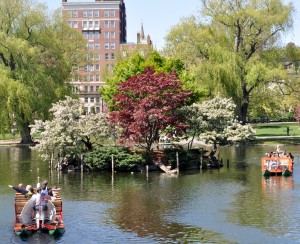
The New York Times morning news feed subheads, ‘James “Whitey” Bulger, who terrorized Boston for decades, returned to face charges including complicity in 19 murders.’ This morning’s Boston Globe front-page banner reads: ‘Back in the town he terrorized’.
No question Whitey’s back. But ‘terrorized’?
Until very shortly before he began his 16-year vacation from Boston, for a tier-1 local thug, he had a pretty good reputation. He was supposed to have kept drugs out of Southie. He and his brother, State Senate President Billy Bulger, had Sunday dinner together at their mother’s – one big family.
It was so James Cagney and Pat O’Brien. Their 30s movies, such as ‘Angels with Dirty Faces’ about the bad shanty Irish kid and the good one, always nauseated me.
The reality, carefully gauzed, was far grimmer. As with the Bulgers, protecting the criminal inflicted huge costs on the ‘good’ brothers. Look at what happened to Whitey’s brothers Billy and John.
But did Whitey ‘terrorize’ Boston? No.
Before his disappearance, no one I heard spoke of him as everyone did the ‘Boston Strangler’ who terrorized the city – even the region – for 18 months in the early 60s. Whitey didn’t randomly strangle women in their homes. The 19 murders he allegedly committed or orchestrated over two decades caused as little general fear as the almost daily shootings today in Roxbury.
Whitey seemed one of characters in Jimmy Breslin’s The Gang that Couldn’t Shoot Straight. The people who got killed needed killing. And, the thugs were amusing in a sick sort of way. Remember the Winter Hill Gang girlfriend whose lacquered bouffant stopped the bullet meant to make her boyfriend’s a double funeral?
As he did so often, the great George V. Higgins got it right in The Friends of Eddie Coyle (1972). But even Higgins, who understood Boston as no one else in his time, had no idea how broadly and deeply the evil spread.
I don’t think the Bulger story will serve a novelist well. People admire The Last Hurrah (1956) and Edwin O’Connor’s representation of Boston’s legendary mayor and US representative James Michael Curley. But O’Connor doesn’t capture the man or the tragedy Curley represented and caused – and causes to this day – as well as Jack Beatty does in his fine biography, The Rascal King (1992).
The truth in Boston politics and crime – often, if not usually, the same story – is too complex even for a great novelist.
Recent Comments